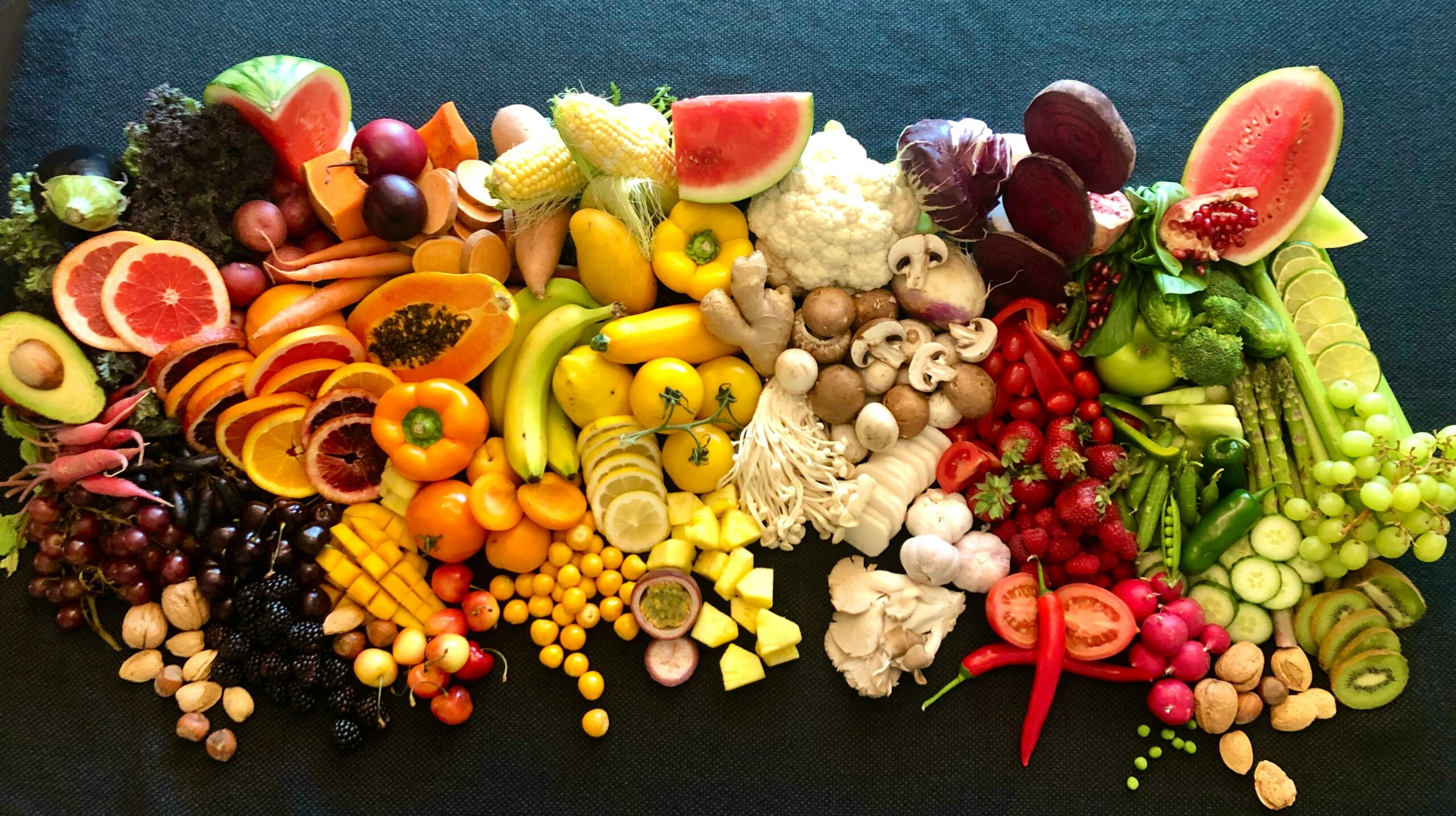Photo by Beyza Ylmaz on Unsplash
Consumers are increasingly expecting more from food and drink brands. Recent research by global public health and safety organisation NSF reveals that UK shoppers want food labels to be clearer, more transparent, and standardised[i].
Whether it’s to improve gut health, energy or focus, today’s consumers are looking for evidence-backed products and honesty from brands. They’re trying to cut through the noise of confusing health claims and are actively seeking products that are genuinely good for them.
This shift brings a challenge: how can brands communicate the science behind their products clearly and engagingly—without patronising their audience or appearing to “health-wash”?
One powerful solution is to form meaningful, long-term partnerships with healthcare professionals (HCPs). These partnerships can act as an essential tool within the larger toolkit companies use to build goodwill and reputation. This blog explores how such collaborations can help food and drink brands build trust, credibility, and lasting impact.
Why has trust in the food and drink industry declined?
A recent report by the EIT Food Consumer Observatory that surveyed almost 20,000 consumers across Europe found that more than 1 in 4 (27%) actively distrust food manufacturers[ii]. Only 44% of consumers believe the foods they eat are healthy.
At the same time, the explosion of wellness influencers has created a noisy and sometimes misleading landscape. The current social media scene is awash with confusing nutritional advice that scientist Sarah Berry calls “nutri-bollocks” used to sell everything from keto, detox teas, menopause supplements and more.
On top of this, the rise in scepticism of ultra-processed foods and the confusion over sugars (sucrose) and its many rhyming cousins (dextrose, galactose, maltose, etc.) have left us squinting at the small print on our protein bars.
Can brands build trust with sceptical consumers?
Food and drink brands can segment consumers into different levels of scepticism. At one end are consumers who are always wary of industry and don’t believe they will ever be completely transparent. At the other end are loyalists who stick with a brand through thick and thin. In the middle are former customers who have had their trust dented in recent storms, and then there are the new breed of consumers who want to associate themselves with brands that look and behave in alignment with their own lifestyle. Those working in reputation management know they can be most productive by focussing on groups in the middle.
To reach these types of consumers and counter increasing scepticism, food and drink brands with a commitment to credible, evidence-based health and nutrition are increasingly turning to HCPs. These partnerships themselves are evolving to fit the times.
The role of health professionals in marketing: then and now
Traditionally, brands have turned to HCPs as trusted expert consultants for validation or behind-the-scenes advisory. They have also been brought in to endorse campaigns and messaging. Brands sometimes engage media-friendly, generalist HCPs to act as spokespeople in the media.
Increasingly, public-facing HCPs – dietitians, nutritionists, and general practitioners – are taking on the mantle as influencers and content creators. Dr Micheal Mosley paved the way where others have followed.
This new breed of HCPs are not only acting as spokespeople for brands, they are role models who live and breathe their own health philosophy or brand. Epidemiologist turned entrepreneur Tim Spector promoted gut health while growing nutrition company Zoe, and registered dietitian and nutritionist Megan Rossi branded herself as the Gut Health Doctor, launching gut health food brand “Bio&Me” and the probiotic range Smart Strains.
These entrepreneurial HCPs are unlikely to represent other brands. But other savvy HCPs with built in media-following can bring greater exposure while acting as a trusted voice of authority. Yet the size of their online following isn’t the key factor. A micro- or nano-influencer with the right credentials and the right ethos can bring credibility and trust.
Other ways HCPs can help
Behaviour Change Expertise: HCPs can translate science into practical lifestyle advice aligned with public health goals
Content & Communication: HCPs are valuable contributors to blogs, social media campaigns, webinars, and press outreach. Search engines and AI-generated search favour content written by trusted authorities, making HCP-produced content particularly valuable for maximising visibility online.
Product Validation & Feedback: Informed insights into formulation, positioning, and claims substantiation. HCPs can provide scientific reassurance/credibility when your ability to make health claims are curtailed.
Reaching Niche Audiences: Tailored messaging for specific health concerns or audiences (e.g., gut health, diabetes, maternal nutrition, other HCPs).
The power to influence other health professionals
Several leading brands in the functional food and drink space are investing in dedicated platforms to engage healthcare professionals directly. Yakult’s “Science for Health” hub, The Symprove Academy, Gatorade’s Sports Science Institute, Nutricia’s online education portal, and Danone’s GetPRO Professional initiative all provide tailored resources and training for HCPs. These initiatives all rely on respected HCPs to create credible, evidence-based content that supports professional practice and reinforces brand trust.
These dedicated HCP hubs provide digestible science to arm professionals with tools to make informed recommendations grounded in evidence. This approach is based on a long-term strategy of building trust and confidence with a core, medically-savvy audience who have influence in the food as nutrition space.
Best Practices for Collaboration
Increasingly, food and nutrition brands will need to ensure their brands’ ethos aligns with that of the HCP partner, regardless of the size their social media following. While your average HCPs may represent less of a reputation risk than a celebrity (see Kanye West and Adidas), an authentic connection and alignment with brand ethos is key.
Transparency: Be clear about commercial relationships and ensure compliance with advertising codes such as the UK’s Advertising Standards Authority (ASA).
Co-creation: Involve HCPs early in campaign planning to ensure scientific accuracy and alignment with public health narratives.
Cross-Functional Teams: Keep everyone in the loop by working with marketing, legal, and regulatory teams to ensure messaging is both impactful and compliant.
Data-Driven Storytelling: Support content with credible evidence to enhance impact, but remember the data needs to paired with stories that put people front and centre.
Four Pitfalls to Avoid
Overstepping Regulatory Boundaries: Avoid using HCPs to make direct product endorsements or medical claims. Not only do brands risk being told to pull ads and marketing content that fall foul of guidelines, they risk being fined. But the greater risk is to reputation.
Tokenism: Don’t use HCPs for superficial validation; ensure they have genuine input and alignment with brand values.
Lack of Diversity: Ensure inclusion of HCP voices from different backgrounds and specialties.
Ignoring the Consumer Lens: Don’t let clinical language dominate; ensure communication is accessible and engaging (see our blog “Getting the words right with disease awareness“).
Looking ahead: The future of HCP partnerships
Today’s most effective HCP collaborations involve genuine co-creation, backed by robust scientific evidence and aimed at both professionals and the public. More brands are investing in educational content, toolkits, and peer-to-peer resources that help other HCPs make informed recommendations and consumers make informed choices.
To succeed, brands must embed education into their DNA — not just as a marketing lever — but as a long-term commitment to integrity and impact. Partnerships with HCPs can bring these valuable components to food and drink marketing. They help brands educate responsibly and earn trust.
Consider partnering with an agency like Say — who understands the regulations and have the relationships with HCPs and the experience with building creative, impactful campaigns underpinned by evidence — to shape bespoke programmes that align with food and drink brands’ business objectives.
For more insights, sign up to the food and nutrition edition of our newsletter, Food for Thought.
[i] White Paper: The Future of Food Labelling in the UK, as covered in NSF news page: NSF Research Reveals Brits Demand Greater Clarity, Transparency and Standardisation in Food Labelling, 8 Jan 2025. https://www.nsf.org/gb/en/news/nsf-research-reveals-brits-demand-greater-clarity-transparency-and-standardisation-in-food-labelling?utm_source=chatgpt.com
[ii] Trust Report 2024, An EIT Food Consumer Observatory study on European consumer trust in the food system. 11 Feb 2025. https://www.eitfood.eu/reports/trust-report-2024

